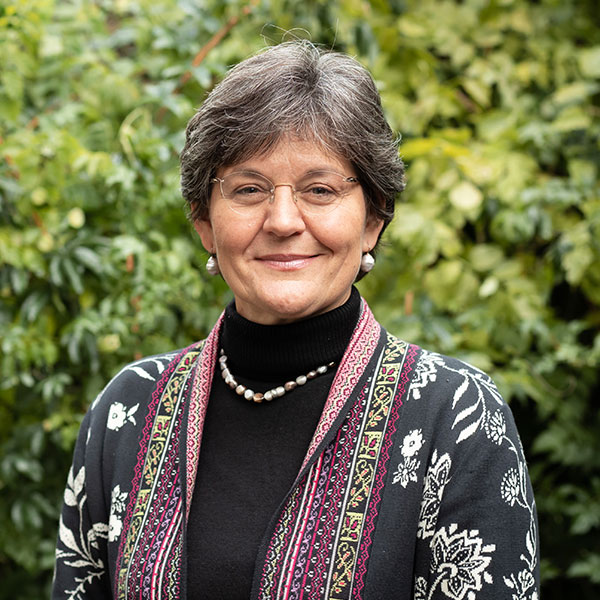
Steering Committee


Sneška Quaedvlieg-Mihailovic has dedicated her life to championing Europe’s shared values and shared cultural heritage, working for Europa Nostra for over three decades and assuming the role of Secretary General in 2000.
In 2022, Sneška was elevated to the rank of Knight of the national order of the Legion of Honour for her “unreserved commitment to the preservation of heritage in Serbia and more widely in Europe” and “dedication and commitment to the cultural dimension of the European project.”
A prominent figure in cultural heritage discourse, Sneška serves as a spokesperson for the European Heritage Alliance and currently serves on the EC Expert Group on Cultural Heritage. Her influence extends to climate action as regional co-Chair of the Climate Heritage Network. She is a member of the Europeana Foundation Advisory Board, the EUYO Advisory Council and the Steering Committee of the European Music Centre in Bougival.
Before joining Europa Nostra, Sneška worked for the EU Institutions in Brussels and Belgrade. She was one of the founders and first Secretary-General of the European Movement in Yugoslavia. Sneška holds a graduate degree in International Law (Belgrade, former Yugoslavia) and a postgraduate degree in European Law and Politics (Nancy, France).
Carla Toffolo is a conference interpreter with a degree from the High School of Modern Languages for Interpreters and Translators, University of Trieste, and also trained at the Ecole de Traduction et d’lnterprétation of the Université de Genève. She is a member of AIIC (Association Internationale des Interprètes de Conférence).
As soon as she finished high school, she started working in the cultural domain, particularly in the production of cultural shows for Raiuno and in the promotion and management of PR operations in the film industry. Life brought her closer to the world of cultural heritage in 1997 with an American organisation, the World Monuments Fund, first in Venice and then in Paris. The return to Venice coincided with the turn of the millennium and her involvement with the Association of International Private Committees for the safeguarding of Venice.
She is currently coordinating, within Europa Nostra, the EU-funded pilot project for the creation of a European Cultural Heritage Hub, of whose Board of Directors she had been a member for three years.
Harry Verwayen is the General Director of the Europeana Foundation, the operator of the Europeana Initiative. Across Europe, museums, galleries and archives are digitising their collections. Europeana supports these organisations in their digital transformation by making these available as widely as possible so that people can find and use them.
For work, for learning or just for fun: Europeana’s work is guided by creative collaboration, supportive teamwork and the idea that sharing and reusing cultural content can positively transform the world.
Prior to this Harry worked at the Amsterdam-based think tank Kennisland where he was responsible for business model innovation in the cultural heritage sector. He holds a MA in History from Leiden University and has worked over ten years in the Academic Publishing Industry.
Julie is head of culture at Eurocities, the European network of large cities, gathering over 200 cities in Europe. She specialises in local cultural policies and manages Eurocities activities on culture, cultural heritage and architecture; these include policy and advocacy work, knowledge exchange, capacity-building activities, development and implementation of European funded projects and service contracts.
Julie has over 18 years of experience in working with city representatives at political and technical levels. She is a member of the European Commission expert group on cultural heritage, of the new EIT on culture and creativity, and represents Eurocities in the EU Urban Agenda Partnership on culture and cultural heritage.
Cristina Garzillo Leemhuis is Head of Built Environment, Culture and Heritage at ICLEI. Having more than 20 years of experience working in and for local governments, Cristina is recognised for her work as expert in local sustainability processes, culture and cultural heritage, integrated management and governance as well as author of numerous publications in the field of local sustainability, knowledge brokerage and transition.
Cristina has been appraiser and expert for the URBACT Programme, the Urban Innovative Actions Initiative, the European Committee of the Regions and United Nations. She is currently member of the European Commission’s Expert Group on Culture and Cultural Heritage; expert for UNOPS; member of the Partnership on Culture and Cultural Heritage and Sustainable Tourism of the Urban Agenda for the EU and the New European Bauhaus community.
Cristina can also draw on a wealth of academic experience gained from her previous role as contract professor at the University of Parma. She joins the editorial board of the European Journal of Creative Practices in Cities and Landscapes.
Dr. Jermina Stanojev is a policy and research expert and lecturer in cultural heritage and international cultural relations. She serves as an individual expert to the European Commission expert group on cultural heritage. Dr. Stanojev has extensive experience in policy development, evidence-based research, and the implementation of international projects. She has collaborated with institutions such as Uppsala University, KU Leuven, Una Europa, UNESCO, Europa Nostra, the European Commission, and Goethe-Institut Brussels. Her work focuses on culture-led policy development to address global challenges through various governance frameworks.
Dr. Stanojev co-chairs the EIT Culture & Creativity Strategic Topic Group on Cultural Heritage in Green and Digital Transitions for Inclusive Societies. She advises on cultural heritage in international relations within the Instrument for Pre-Accession Assistance in the Western Balkans and supports the EU Strategy for International Cultural Relations.
She is an expert advisor to the European Heritage Green Paper and a member of the CHARTER advisory board. She co-authored the report “Skills, Training and Knowledge-transfer in the Traditional and Emerging Heritage” from the Structured Dialogue with the European Commission. Additionally, she serves as an expert assessor for the European Urban Initiative – Innovative Actions – New European Bauhaus projects, vice-chair for the Creative Europe programme, and a European Heritage Awards jury member.
Baritone applauded on the most prestigious stages from Moscow to New York, from Reykjavik to Rio de Janeiro, Jorge Chaminé is also an experienced teacher regularly giving masterclasses in Europe, Canada, Brazil and the US.
As Ambassador of the Music in Middle East Foundation, he was named 1st Musician for Peace in 2011 by the organisation Music for Peace. In 2018 he was promoted to the rank of Officier dans l’Ordre des Arts et des Lettres by the French Minister of Culture, and received in 2019 the Grand Vermeil Medal of the City of Paris. Chaminé was also appointed Ambassador for Peace and Justice of the 17 SDGs of the UN’s “Agenda 2030 NOW.”
Jorge Chaminé is the Founder-President of the European Music Centre (CEM), a meeting place for the arts, humanities, sciences and generations. The CEM celebrates music as a universal language, at the heart of European identity and its humanistic values. He is also a Council Member of Europa Nostra and Board member of the Yehudi Menuhin Foundation.
Art and architecture historian, graduated in History, post graduated in Museology (Curator of Museums and National Palaces) and PhD in History of Architecture (Technical University of Lisboa), Maria Calado is President of Centro Nacional de Cultura. She is also a member of the National Council for Education and of the General Council of the National Commission for UNESCO, and an active member of ICOMOS.
Previously, Maria Calado developed an academic career, first at the School of Fine Arts and later at the Faculty of Architecture of Lisbon (Lisbon University) as researcher, full professor and director of the Department of History and Theory of Architecture, Urbanism, Design and Arts. She is the author of books about History of Art, Cultural Heritage, and Cultural Policies.
Maria Calado was Deputy Mayor of Lisbon for Cultural and Social Policies, and coordinator of the Municipal Council for the Integration of People with Disabilities and of the Municipal Council for the Inclusion of Ethnic Communities. She coordinated the European Heritage Days, and was the President of the General Assembly of ICOMOS Portugal.
Jasna Popović graduated from Law in Belgrade and holds two masters – one in International public law and another in Human Rights, and now is a Ph.D. candidate at UC3M, Madrid, researching the link between cultural heritage and sustainable tourism.
She has experience in the administration (working in the Serbian Embassy in Spain), cultural heritage NGO sector (collaborating with Hispania Nostra), and private sector collaborating with tourist agencies.
Currently, she is a freelance cultural practitioner and she is collaborating with Hispania Nostra, where she oversees youth involvement, digital transformation in heritage and EU-funded projects. She is also working as Coordinator of youth activities for the European Heritage Hub pilot-project. She is also very active in ESACH where she has volunteered as Secretary since September 2022.
Dr Katarzyna Jagodzińska is the Head of the Europa Nostra Heritage Hub for Central and Eastern Europe. She is also an Assistant Professor at the Institute of European Studies, Jagiellonian University in Krakow, Poland, and first Director for Programming in the Toy Museum in Krakow.
She is an art historian and journalist, specialised in museum studies and cultural heritage. She is the co-host of the podcast series “Ukraine Heritage Spotlight”, “Holistic Heritage”, and “Holistic Heritage: On The Road.”
She is the author of five books on museums, including those published in English; “Museums and Centers of Contemporary Art in Central Europe after 1989” (Routledge, 2020) and “Art Museums in Australia” (Jagiellonian University Press, 2017), co-author of Europa Nostra report “Cultural Heritage Counts for Europe,” and co-editor of “The Power of Heritage. Socio-Economic Examples from Central Europe” (with Joanna Sanetra-Szeliga, International Cultural Centre, 2017).